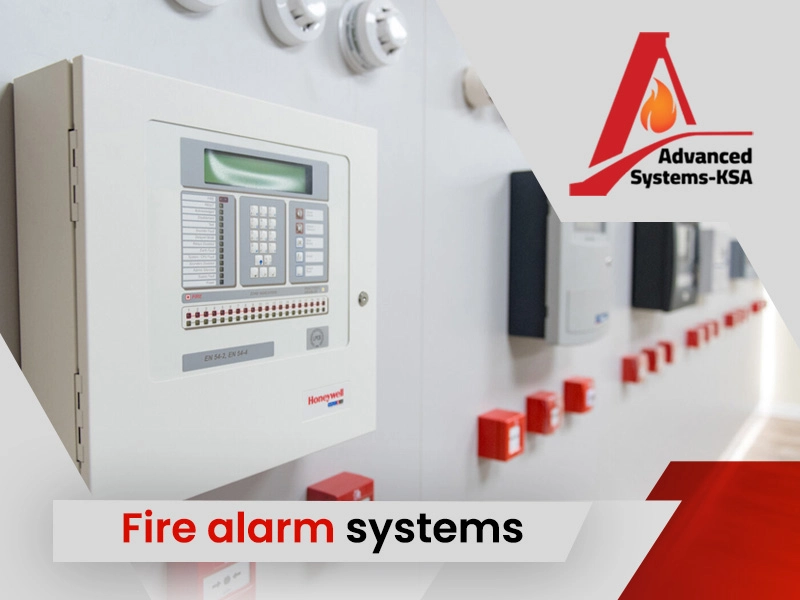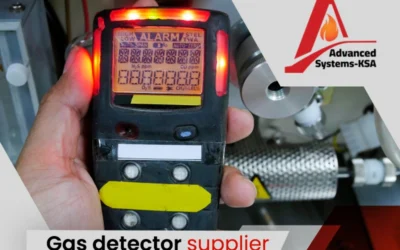Fire alarm systems are indispensable safety tools, serving as crucial safeguards for both lives and property. Ranging from traditional wired setups to cutting-edge wireless solutions, a plethora of fire alarm systems are tailored to meet diverse needs and operational requirements. This article takes a closer look at the types of fire alarm systems and the essential considerations in selecting the ideal system for your residence or establishment.
What is a fire alarm system?
A fire alarm system is a network of interconnected components designed to detect and alert occupants of a building in the event of a fire or smoke-related emergency. The primary purpose of a fire alarm system is to provide early warning to occupants, allowing them to evacuate safely and enabling prompt response from emergency personnel. A typical fire alarm system consists of the following components:
- Fire detection devices such as smoke detectors, heat detectors, flame detectors, and gas detectors.
- Control panel, which activates alarms and triggers appropriate response actions, such as notifying occupants and emergency services.
- Notification devices include fire alarms, sirens, strobe lights, and voice evacuation systems.
- Manual activation devices allow individuals to manually trigger the fire alarm system by activating a button or breaking a glass.
- Monitoring system to allow 24/7 monitoring of the system, where trained operators can receive alerts and take appropriate actions.
read about: How Fire Alarm System Works
Types of Fire Alarm Systems
There are several types of fire alarm systems, each with advantages and disadvantages. The most common types include:
Conventional Fire Alarm Systems
Conventional fire alarm systems are basic yet widely used types of fire alarm systems. They are suitable for smaller buildings and simpler applications. These systems divide the protected area into zones, each connected to a specific circuit. Fire detection devices like smoke or heat detectors are installed within each zone.
When a fire event occurs, the device in the affected zone detects smoke or heat, triggering an alarm signal through the corresponding circuit. Conventional systems are known for their simplicity, cost-effectiveness, durability, and reliability.
However, they cannot pinpoint the exact fire location within a zone, potentially causing a delayed emergency response. They are also more susceptible to false alarms due to less sophisticated detection capabilities.
Addressable Fire Alarm System
Addressable fire alarm systems are advanced types of fire alarm systems that provide precise identification of fire locations. Each detection device, like smoke or heat detectors, has a unique address and connects to a central control panel through communication loops or circuits. When a device detects a fire, it sends a signal with its specific address to the control panel, pinpointing the fire’s exact location.
Addressable systems enable rapid response, facilitating quick evacuation and the efficient deployment of emergency teams. They can manage numerous devices, making them suitable for complex buildings. Additional features include event logging, remote monitoring, and integration with other systems for enhanced safety. These systems are more complex and expensive to install and maintain, but they offer superior functionality for precise fire detection and location identification in larger buildings or facilities.
Analog fire alarm systems
Analog fire alarm systems are advanced types of fire detection systems, offer enhanced sensitivity and precision. These systems use analog sensors to monitor environmental conditions for signs of fire continuously. Analog sensors analyze subtle variations in readings, allowing for early detection of potential fire hazards.
The sensor data is transmitted to a central control panel, enabling real-time analysis and differentiation between harmless changes and genuine fire threats, reducing false alarms. Analog systems provide detailed information about fire location and severity by analyzing data from multiple sensors, facilitating a targeted response. They offer flexibility, scalability, and integration with other building systems.
However, careful calibration and maintenance are necessary for optimal performance. Analog fire alarm systems are a valuable investment for buildings prioritizing safety.
Wireless Fire Alarm Systems
Wireless fire alarm systems are a flexible and modern solution for fire detection in buildings. Unlike traditional wired systems, they utilize wireless communication technology, eliminating the need for extensive wiring and making installation more cost-effective. In these systems, fire detection devices communicate wirelessly with a central control panel, sending signals when detecting fire or smoke.
Wireless communication ensures real-time transmission for accurate detection. The key advantage of wireless systems is their flexibility, allowing for easy installation and expansion without wiring limitations. They are suitable for temporary setups and retrofitting existing buildings, with minimal disruption and maintenance compared to wired systems.
However, signal range and potential interference should be considered. Overall, wireless fire alarm systems provide convenience, flexibility, and reliable performance for fire detection in various building environments.
Intelligent fire alarm systems
These types of fire alarm systems are advanced versions of addressable or analog systems. Harnessing sophisticated algorithms and advanced programming, they excel in analyzing data collected from a multitude of sensors and devices.
What sets intelligent fire alarm systems apart is their unparalleled ability to discern between false alarms and genuine fire events. By scrutinizing sensor data with precision, these systems significantly enhance reliability while simultaneously minimizing false alarm rates.
This heightened level of intelligence enables these systems to react swiftly and accurately to fire threats, ensuring timely responses that can mean the difference between minor incidents and catastrophic losses. Whether deployed in residential, commercial, or industrial settings, intelligent fire alarm systems offer a level of protection that is unmatched by their predecessors, setting a new standard for fire safety.
By understanding the various types of fire alarm systems, their functionalities, and your specific needs, you can make an informed decision and select the optimal system for your home or building.
Remember, prioritizing fire safety is an essential investment. Consulting a qualified firefighting solutions company as Advanced Systems can provide valuable guidance in choosing the right system and ensuring its proper installation and maintenance. Contact us now and get your consultation.
Read More:
Fire Hose Cabinet Types Firefighting Tools And Equipments Fire Water Pump Manufacturers Fire Sprinklers Companies Fire Hose Cabinet Price. Fire Hydrant Pump Prices Foam Firefighting Equipment






